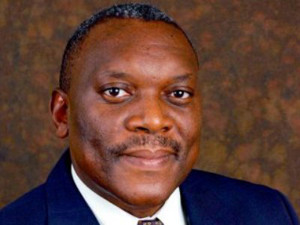
Siyabonga Cwele, the new minister of the Department of Telecommunications and Postal Services (DTPS), has targeted sterner global competitiveness for SA's ICT sector as he laid out some of his plans in a budget vote address delivered today.
The new department has been allocated R1.59 billion, according to the minister.
Cwele said continued deployment of the country's broadband infrastructure will be prioritised to bridge the divide between rural and urban areas, and adding to around 170 000km of fixed-line fibre currently linking towns and cities.
According to the minister, the forthcoming year will be characterised by "focused attention on infrastructure rollout, the creation and acceleration of the expansion of e-government services, the coordination and streamlining of public entities in the sector, as a well as a reconfigured department which will ensure policy and regulatory certainty within the ICT sector".
The DTPS aims to build on the gains made under former minister Yunus Carrim, whose administration published the national broadband plan SA Connect - targeting 100% broadband penetration by 2020.
"In the current financial year, R20 million has been allocated for the finalisation of the first phase of the broadband plan," said Cwele.
"By end of this month, the business case will be finalised that seeks funding to connect 580 clinics, 4 444 schools, 182 police stations, and 572 other government offices in the medium term."
He said the National Broadband Advisory Council was a "critical platform" for engagement between government, private sector, academia, and civil society.
Clearing the path
Cwele noted the duplication of public and private infrastructure increases deployment costs - meaning consumers bear the brunt when paying to communicate. "To address these bottlenecks, we will seek to direct ICASA to formulate regulations for infrastructure and facility sharing.
"These regulations will look into how public networks can be offered on a common carrier basis so as to facilitate cost savings and the entry of many players and the enhancement of competition."
The department will also look at establishing an "open access regime" in a bid to "allow those without access to critical public input resources like the spectrum, way leaves, rights of way and high sites, to enter the market on the same conditions as those who own the infrastructure".
Cwele added the department will finalise a study on an open access network by October to gauge how critical resources can be leveraged to boost competition and drive down costs for consumers.
Switching over
The DTPS plans to forge ahead with digital migration, as Cwele indicated the need for urgency. "The June 2015 deadline looms before us and we dare not let our people down.
"By the end of this month, the final broadcast digital migration policy, which had been subject to public consultation, will be gazetted.
"Within three months, we will designate the date of the start of the digital switch-on. This designation will allow the industry, manufacturers and TV-owning households to prepare accordingly in order to purchase and install set-top boxes that will make the digital switchover possible."
Cwele said the ring-fenced budget for broadcast digital migration is R2.97 billion.
Share